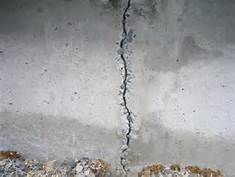Foundation Cracks to Be Concerned About
May 16, 2024
Foundation Cracks to Be Concerned About
Are cracks in your home’s foundation giving you sleepless nights? Foundation issues can be a homeowner’s worst nightmare, but not all cracks are created equal. In this blog post, we will delve into the world of foundation cracks to help you identify which ones to be concerned about and how to address them. So, grab a cup of coffee, and let’s dive into the world beneath your feet!
Foundation Cracks to Be Concerned About
Foundation cracks can be a cause for concern, but not all of them spell disaster. It’s essential to distinguish between non-structural and structural cracks in your home’s foundation. Non-structural cracks are typically superficial and may result from minor shifts in the ground or curing of concrete.
On the other hand, structural cracks indicate more severe issues that require immediate attention. These types of cracks often point to underlying problems like settlement or excessive water pressure on the foundation walls. By understanding the types of foundation cracks to be concerned about, you can take proactive steps to address them before they escalate into major structural issues.
Why Do Foundations Crack?
Foundations crack due to various factors that can compromise their integrity. One common reason is settling, where the soil beneath the foundation shifts, causing stress and cracks. This can happen over time as the ground naturally settles or if the foundation was not properly supported during construction.
Another cause of foundation cracks is groundwater pressure. When water accumulates around the foundation, it exerts pressure on the walls, leading to cracks. Poor drainage systems or heavy rainfall can exacerbate this issue, highlighting why proper maintenance and monitoring are crucial for preserving a solid foundation. Contact Rescon Basement Solutions today
Types of Foundation Cracks
Foundation cracks can come in various shapes and sizes, indicating different issues within the building’s structure. Some cracks are classified as non-structural, meaning they don’t pose a significant threat to the integrity of the foundation. These types of cracks usually result from minor shifts in the soil or temperature changes.
On the other hand, structural foundation cracks are more concerning as they suggest underlying problems that may affect the stability of the entire building. These cracks often appear wider than hairline cracks and could be a sign of serious structural damage that requires immediate attention.
Non-Structural Foundation Cracks
Non-structural foundation cracks may seem minor, but they can still indicate underlying issues. These cracks are typically caused by factors like minor settlement or shrinkage in the concrete. While they may not jeopardize the structural integrity of your home, it’s essential to monitor them closely to prevent any potential escalation.
Common types of non-structural cracks include vertical and diagonal hairline cracks or wider horizontal cracking. Regular inspections by a professional can help identify these cracks early on and address them before they lead to more severe problems down the line.
Structural Foundation Cracks
Structural foundation cracks are the ones that raise red flags for homeowners. These cracks indicate potential structural issues within the foundation of a building. They are usually wider than hairline cracks and can be seen both horizontally and vertically along the walls or floors.
When it comes to structural foundation cracks, it’s essential to pay attention to their size, shape, and direction. Cracks that are wider than 1/4 inch or show signs of movement may require immediate attention from a professional contractor to prevent further damage to the integrity of the building.
Other Signs of Foundation Trouble
Other signs of foundation trouble may not always be as obvious as cracks in the walls. Keep an eye out for doors and windows that are difficult to open or close smoothly, uneven floors, and gaps between walls or ceilings. If you notice your house is starting to look crooked or sloping in certain areas, this could also be a sign of foundation issues. It’s essential to pay attention to these subtle signs as they could indicate underlying problems with your home’s foundation that need immediate attention before they worsen over time.
Preventing Foundation Cracks
Foundation cracks can be a homeowner’s nightmare, but there are ways to prevent them from happening in the first place. Construction procedures play a significant role in ensuring a strong foundation. When done correctly, it can minimize the risk of cracks forming over time.
Settling foundations and groundwater pressure are common causes of cracks. Properly managing these factors during construction can help prevent future issues. By addressing these concerns early on, homeowners can save themselves from costly repairs down the line.
Construction Procedures
When it comes to construction procedures, proper techniques are vital in preventing foundation cracks. The quality of materials used and the expertise of the builders play a significant role in ensuring a strong foundation.
From site preparation to concrete pouring, every step must be meticulously executed. Attention to detail during the construction process is crucial for long-lasting structural integrity. By following best practices and industry standards, you can minimize the risk of foundation issues down the line.
Settling Foundation
As a homeowner, noticing cracks in your foundation can be alarming. One common cause of foundation cracks is settling. Over time, the soil beneath your home may shift or compact, leading to uneven support for your foundation.
This settling can result in visible cracks as the structure adjusts to the changing ground conditions. It’s essential to address these issues promptly to prevent further damage and ensure the stability of your home. If you suspect that your foundation is settling, it’s crucial to consult with a professional to assess the situation and determine the best course of action.
Groundwater Pressure Issue
Groundwater pressure can be a significant factor leading to foundation cracks. When the soil around your foundation becomes saturated with water, it exerts pressure on the walls, causing them to crack under the strain. This is especially common in areas prone to heavy rainfall or poor drainage systems.
If left unchecked, groundwater pressure can worsen over time and result in severe structural damage to your home’s foundation. It’s essential to address any issues with drainage or waterproofing to prevent this issue from escalating further.
Repairing Non-Structural Foundation Cracks
When it comes to non-structural foundation cracks, timely repairs are crucial to prevent them from worsening. These types of cracks may not pose an immediate threat to the stability of your home but can lead to issues if left unattended.
Repairing non-structural foundation cracks typically involves filling them with epoxy or polyurethane injections. This process helps seal the crack and prevent water intrusion, which could cause further damage over time. It’s essential to address these cracks promptly to maintain the integrity of your home’s foundation.
Repairing Structural Foundation Cracks
Repairing Structural Foundation Cracks is a crucial step in ensuring the stability and safety of your home. It’s essential to address these issues promptly and effectively to prevent further damage. By seeking professional help and using appropriate repair techniques, you can reinforce your foundation and restore its integrity. Remember, taking action early can save you time, money, and stress in the long run. Keep an eye on your foundation for any signs of structural cracks and address them promptly to maintain the structural integrity of your home. Contact Rescon Basement Solutions today!

